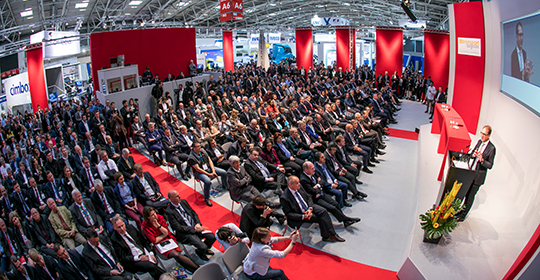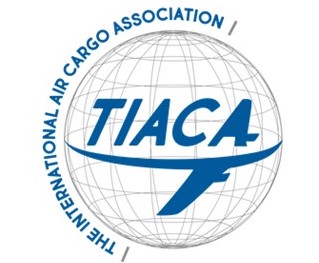- Brexit: “No matter what happens, goods must flow”
- Logistics industry prepares for all eventualities
- Dachser, Port of Rotterdam and 2,680 logistics professionals take a relaxed view of matters
British companies are filing their warehouses and plan to relocate, while logisticians across Europe fine tune Plan B and Plan C.
Despite the imminent Brexit, many logistics professionals are fairly at ease according to a recent survey of 2,680 trade fair participants at transport logistic.
“Thirty-eight percent of respondents said they were prepared for all eventualities. Fifty percent are not directly affected and only 12 percent fear massive adverse effects from a hard Brexit,” Stefan Rummel, Managing Director of Messe München, stated.
While governments are still negotiating the design of Brexit, many companies have already taken measures to minimize its impact. Regardless of whether big players or medium-sized companies, all trade fair participants will exchange ideas on this topic at transport logistic in Munich.
Import duties, physical checks, heavy bureaucracy and consequently longer terms and higher costs; if the flow of goods between the UK and the rest of Europe should slacken or even break down, the economic damage would be immense. Important industries such as the automotive and food industries depend on timely and rapid deliveries.
Uncertainty among British companies
Timocom’s transport barometer also shows that the British are preparing themselves Truck transports to the UK increased sharply in the first quarter of 2019 compared to the same period last year.
Freight exchange statistics on transport supply and demand in Europe show an increase of 112 percent in transport to the island. In addition, around one in three UK companies plans to relocate their business abroad.
This was shown in a survey conducted by the British Business Association Institute of Directors (IOD) among 1,200 chief executives in January 2019.
European logisticians are well positioned
Particularly at the bottleneck between Calais and Dover, where more than 11,000 trucks run daily, congestion and waiting times will occur if there is an unregulated exit.
Logistics service provider Dachser is also intensively preparing for this scenario. In an internal project team, experts from various divisions of the company deal with Brexit, with questions about customs clearance, volume control and traffic management as well as IT, personnel and communication issues.
“We are following developments very closely, coordinating centrally with all affected divisions and are in close contact with our customers,” Steffen Wiese said, Head of Sales for European Logistics, North Central Europe at Dachser.
The company has been present in the UK since 1975 and employs nearly 450 people at four locations. In 2018, Dachser UK generated 105.4 million euros gross sales and transported approx. 780,000 shipments with a tonnage of around 600,000 tons.
Wiese emphasized: “Brexit is certainly not an everyday challenge. However, we have taken all the measures at our disposal to ensure that the transport of goods from and to the United Kingdom will continue as smoothly as possible. “No matter what happens, goods must flow.”
Brexit already costs a lot of money
The Netherlands is also heavily affected as a logistical hub and due to its closely intertwined supply chains with the UK. According to Eurostat, approx. 8.8 percent of Dutch exports went to the United Kingdom in 2017. Europe’s largest port, the Port of Rotterdam, is preparing intensively for Brexit and has invested around 1.5 million euros in it so far. Brexit is expected to require an additional 10,500 ships to be inspected each year.
This would require hundreds of additional staff, including customs, veterinary and food control staff. In addition, investments were made in a new digital reporting system. Trading companies doing business with the UK are to register their cargo there. The Port Company estimates that approx. 4,200 companies will be affected.
In addition, the port commissioned a simulation study to see what effects Brexit has on ferry terminals in the port of Rotterdam. Based on the results of that simulation study, buffer parking locations have been arranged for trucks.
Mark van Dijk stated, Manager External Affairs, Port of Rotterdam, stated: “All these preparations are necessary to mitigate as much as possible the negative consequences of Brexit. Yet, these preparations are only effective if everyone in the logistics chain cooperates. This is a prerequisite to smooth trade flows that we never cease to stress.”
Stefan Rummel added: “Many logisticians have prepared themselves for Brexit in the best possible way. But not every company is sufficiently prepared; small and medium-sized companies are particularly challenged in this respect. transport logistic provides the ideal platform to find out more about Brexit and share information with each other,”

Main forums in the conference program of transport logistic:
“Changing Global Markets – Is Logistics in the Driving Seat?” with Dr. Frank Appel (CEO, Deutsche Post AG DHL, Dorothea von Boxberg (Management Board Product and Sales, Lufthansa Cargo AG), Alexander Doll (Management Board Finance, Freight Transport and Logistics, Deutsche Bahn AG), Rolf Habben Jansen (CEO, Hapag-Lloyd AG),
- June 4, 11:00 “New Times in the UK – Going Up or Going Down?”
- June 5, 12:00 “The End of Globalization? Outlook for International Trade”
- June 6, 12:00 Innovation Journey ‚Future of Mobility and Logistics‘

